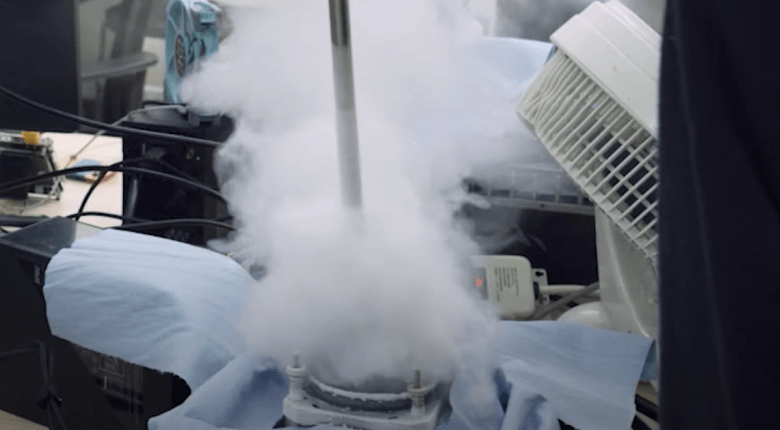- December 23, 2022
- No Comment
- 474
ASUS Claimed a New World Record of 9GHz With Intel Core i9 13900K Chip

Asus and Intel have announced that the recent development involving Intel’s Core i9 13900K has breached the 9GHz barrier. It was officially confirmed that the 13900K was booted to the desktop running at the marginal medium of 9,008MHz. However, Asus’s overclocking team developed the switch using liquid nitrogen to liquid helium in order to achieve this victory.
Keep in mind that Asus had previously marked 8.8GHz using nitrogen. The major benefit of using helium is obviously related to lower temperatures. Asus has indicated that the liquid nitrogen run brought about a temperature of minus 196°C. But the company now used helium which dropped the temperature to minus 269°C. However, it is only 4 degrees up from the absolute zero at “Chilly” minus 273.15°C.
Meanwhile, 9GHz is a more impressive number and you will hopefully see it in the near future with retail chips. Intel is reportedly looking to release a new 6GHz version of the 13900K. It is supposedly the i9 13900KS and is expected to appear at CES in January 2023. The recent overclocking attempt from Asus also confirmed the long-term aspect of clock speed in performance.
The Clock Speed is a Primary Tool for Boost Performance
Intel predicted in 2000 that its then-new Pentium 4 Netburst architecture would reach 10GHz in 2005, but that never happened. However, process node shrinking became a much harder and more expensive way. But adding transistors was considered a less feasible method to increase performance. The clock speed has now been determined to be a primary tool for boosting performance.
Meanwhile, the process of shrinking and frequency jumping are obviously interconnected. So, Intel is very hopeful about its recent bold prediction. The chipmaker said Moore’s Law will keep on transporting and providing trillion transistor chips by 2030. A reliable source (itnews. asia) reported that Intel hardware partner ASUS has issued a powerful claim.
ASUS Made a World Record in CPU Overclocking
ASUS claimed the company has made a record in the world CPU overclocking area. The company used a 13th Gen Core i9-13900K part at 9.008 Giga Hertz. It has the capability to cool the part with liquid helium below zero at 269 degrees. A Taiwanese hardware giant Techies effectively used an ASUS Republic of Gaming Maximus Z790 APEX motherboard.
The motherboard was actually aimed for overclocking in collaboration with an advanced power delivery system. However, the 24-core Intel Core i9 “Raptor Lake” i9-13000K processor has a standard configuration. It is capable of providing a maximum turbo speed of at least 5.8 GHz. Intel and ASUS claimed that the recent achievement of around 9 GHz has become a new overclocking world record.
The Overclocking Team Made New Records
Moreover, Intel and ASUS said the overclocking team has made new records with the SUPER PI 1M and PIFAST benchmarks. It has the capability to calculate the Pi constant and time them at 3.822 and 6.85 seconds respectively. Another reliable source (pcmag.com) reported a similar story. It says ASUS and Intel have made a new world record and managed to overclock the Core i9-13900K processor to 9GHz.
Overclocking experts Pieter Plaiser and Jon Sandstrom managed to set the record at an Asus office, in Taiwan. The Core i9-13900K is fundamentally aimed at just offering max boost speeds at 5.8GHz. The team also used liquid helium for the CPU cooling and achieved much higher clock speeds. Experts first cooled the Intel processor to 196°C prior to bringing down the temperature to -260°C to overclock the CPU.
Cold Liquid Helium Can Effectively Cool the CPU
However, the team managed to overclock the processor to 8.9GHz on the first attempt. But the processor ultimately tried to boot up because of the wildly cold temperatures. They also attempted to maintain backups using 2 other Core i9 chips but neither of the processors provided the required performance.
The team again attempted with their original Core i9-13900K after running out of liquid helium. This attempt brought a remarkable result by breaking the 9GHz barrier as a new record. The chip finally hit a speed of 9,008MHz at -250°C temperature over a single Performance Core in the processor. Experts believe that the extremely cold liquid helium can perfectly cool the CPU.





